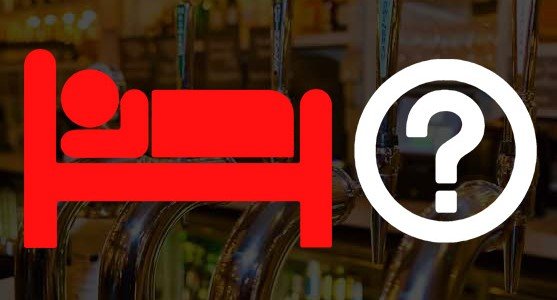Managing Staff Sickness In Your Business
There’s nothing worse in a medium sized business, like the majority of pubs, to have a member of staff always ‘throwing a sicky’. So here are some guidelines to manage the situation.
Sickness can be a tricky issue to manage. While sick employees need to be treated fairly, you want to ensure that ‘sickness’ is not being used as cover for unauthorised absence. Taking disciplinary action against sick employees presents particular legal risks. You also need to ensure that you respect employees’ entitlement to statutory sick pay (SSP) or other contractual sick pay.
Sickness Policy
Well-considered sickness policies can help reduce absence, by discouraging employees from taking ‘sick’ days as a form of extra holiday. For example, you might require employees to phone in sick (rather than taking the easier approach of sending an email). You might also ask to speak to them on their return and require completion of a self-certification sick note explaining the reason for their absence.
Monitoring Sickness
Monitoring patterns of sickness absence can help you detect problems. For example, high levels of sick leave on a Friday or Monday might raise suspicions.
Reviewing Sickness
Reviewing the reasons for sickness can also be important, for example, complaints of back ache may reveal genuine problems with workstations or work practices you should address as part of your health and safety responsibilities.
Sickness and Disciplinary Action
Unless you have clear proof, taking disciplinary action against an employee you suspect of abusing sick leave requires care.
Repeated absence can be grounds for disciplinary action or even dismissal where an employee’s frequent sick leave affects their ability to do their job. However, you could face a claim of unfair discrimination if an employee’s long-term illness amounts to a disability. Do not take action against an employee whose illness is pregnancy-related.
Sick Pay and Statutory Sick Pay (SSP)
Almost all employees are entitled to SSP if they are unable to work for more than a few sick days in a row because of illness. But employees on very low earnings do not qualify.
SSP is payable at a flat rate for up to 28 weeks in any period of sickness. You may be able to reclaim part or all of their SSP payments from HM Revenue & Customs, depending on the amount of SSP paid. SSP establishes a minimum level of sick pay, but your employees ‘employment can offer a more generous level of contractual sick pay.
Where an employee has been, or expects to be, off work for four weeks or more, you can refer them to the Government’s Fit for Work scheme. It can help your employee return to work by providing them with impartial, free health advice.






